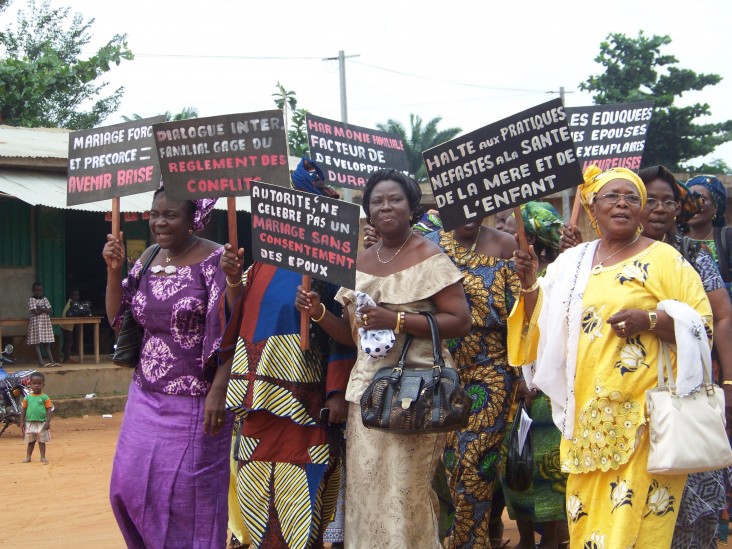
Déborah and her husband Djobo live in the village of Guiguiso in northern Benin. On the night of September 9, 2009, three men assaulted the couple while they slept. Djobo was left bleeding and unconscious and Déborah was raped. After Djobo regained consciousness, he alerted the village. The coordinator of the USAID-supported and CARE International-implemented project to reduce violence against women and girls in all of Benin's 77 municipalities-EMPOWER- promptly informed the police commissioner and project facilitator in nearby Bassila. With the help of the entire population of Guiguiso, the three men were tracked down and taken into custody before sunrise.
Déborah and Djobo sought medical attention from the Bassila hospital and, with medical certificates in hand, they went to the police commissioner. After hearing the accused, the victims, and the witnesses, the commissioner presented the case to the prosecutor. Today, the three accused men await trial from jail.
In Benin, more than 75 percent of women are victims of violence, and 44 percent are sexually abused. Since 2007, USAID has helped to not only promote greater recognition and acceptance of women's rights in Benin but also get more women victims of violence to seek help from the Benin Government's Social Service Centers and the justice system.
"The injury we suffered as a result of this gang rape may pass with time," Déborah said weeks after the assault, "but I dare not imagine what life would be like had we not received help from EMPOWER, all the way from the hospital, the police station, and down to the prosecutor's office to press charges."
From November 2007 to September 2010, the U.S. Government has assissted in 2,782 cases of physical and sexual violence of which 996 reached the Courts of First Instance. This is nearly seven times the number planned for the life of the project, as it is very difficult for Beninese women to press charges against the men who abused them.
"Before," a Beninese judge said, "we would attempt to resolve cases of gender-based violence 'amicably' and out-of-court. This is no longer [the case] because of EMPOWER, which helps the victims understand and pursue their cases in the court system; and mounting pressure from the media, which act as essential partners in the cause of justice for women."







Comment
Make a general inquiry or suggest an improvement.